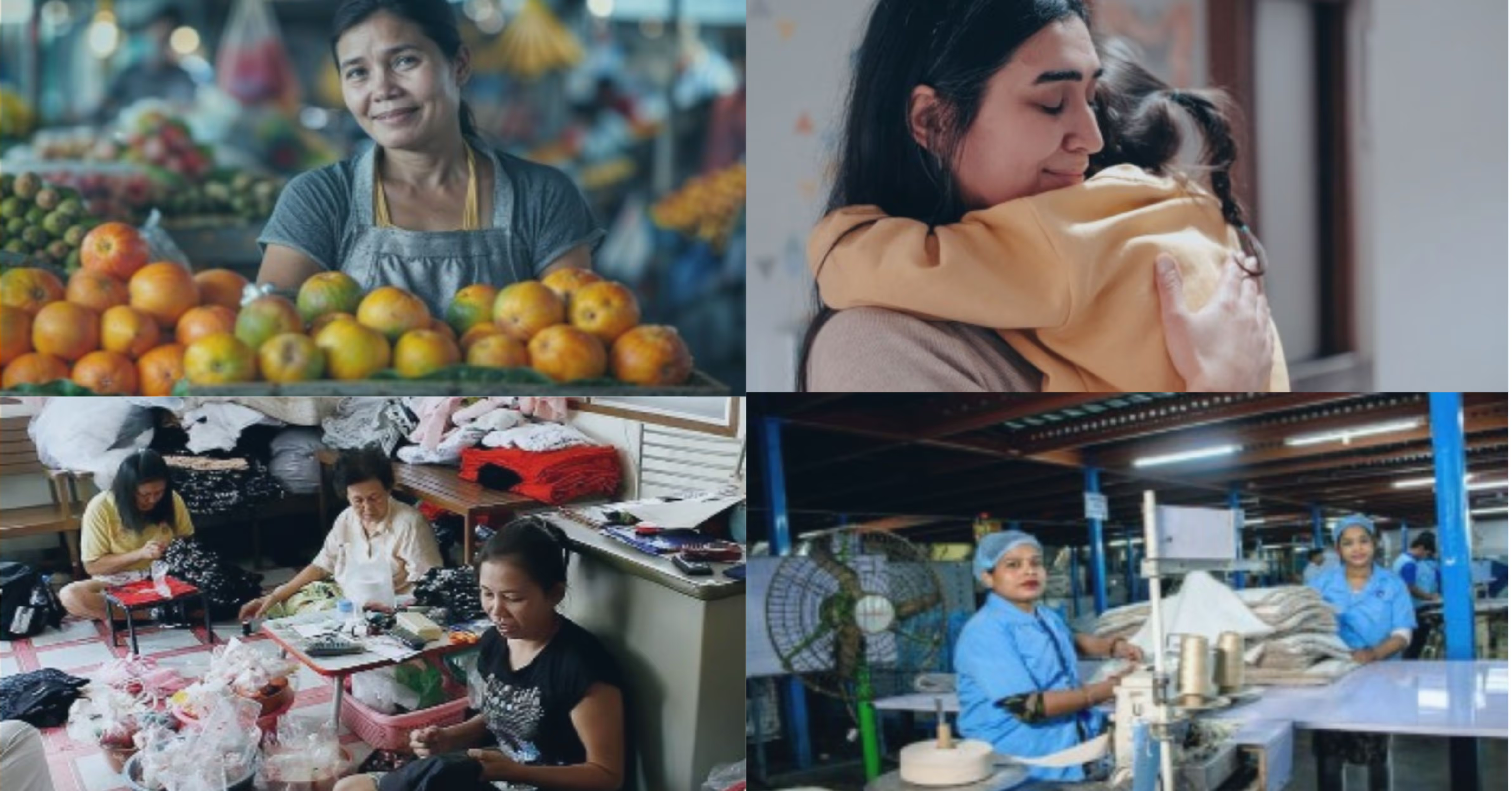
Gendering Global Trade, Recentring Women’s Labour
Introduction
The political spectacle of the “Liberation Day” tariffs has sparked new and renewed debates on the role of trade in global development. But the question of women and gender remains largely neglected, overshadowed by macroeconomic discussions on production, consumption, prices, financial markets, and fiscal and monetary policies. To the extent that women are considered, they are implicit, folded within the impacts of tariffs on employment, with workers portrayed as unfortunate, albeit passive, recipients of global economic shocks.
Gender Dimensions in Global Trade
The impacts of tariffs are not gender neutral. Stephen Miran, Donald Trump’s chief economic adviser, has written about how “tariffs are a big part of the answer” for extending the 2017 Tax Cuts and Jobs Act (due to expire in 2026). However, extending the tax cuts – reaffirmed by Miran’s economic team in a recent report – will limit the fiscal space for public investments in care infrastructure and services. This is especially concerning for care advocates looking to revive a more comprehensive care package, previously shelved by the Biden administration due to concerns over tax increases. Since care work (which includes caring for children and adults and overlaps with domestic work) is disproportionately borne by women, these economic decisions have significant gender implications.
Gender also matters in other important ways. Instead of romanticising the unqualified success of the current international trading system, women’s experiences and encounters with trade paint a more nuanced picture. In Malaysia, the establishment of Free Trade Zones in the 1970s significantly increased the number of manufacturing jobs for women in export-oriented industries. Nonetheless, these were low-wage jobs with precarious working conditions and long working hours, which had put additional pressure on family members, including older women and younger daughters, to step in for care and domestic work.
Since 2010, the push for services liberalisation and the expanding services sector have coincided with the gendered increase of more precarious forms of employment in Malaysia. Female own-account workers increased more than twofold from 484,000 in 2010 to 1,039,900 in 2019, accounting for 33.1% of the increase in female employment before the COVID-19 pandemic. Female home-based workers, more than twice the number of men, increased from 226,700 in 2011 to 352,300 in 2019, accounting for 72.3% of the increase in informal sector employment for women. In the lead up to the 46th ASEAN summit in 2025, Malaysia, as the rotating chair of the regional grouping, has announced further liberalisation of the region’s financial services.
Services sector jobs offer flexibility to women, but they come with the trade-offs of lower wages, job insecurity, and the lack of social protection. This suggests that trade liberalisation does not automatically translate into formal and stable jobs for women, underscoring the importance of not overlooking the gendered effects of trade in services. Trade in services, however, is omitted from the calculations of Trump’s “reciprocal tariffs” and the underlying trade balances.
The uneven and often adverse incorporation of women into international trade suggests that women and men, along with their intersecting identities, may perceive gains and losses from trade differently. This, in turn, shapes differentiated trade preferences for liberalisation and protection. More importantly, women’s experiences throw caution to nostalgic calls for more “free trade” to bring back the idealised (but presently disintegrating) global trade regime. Free trade agreements prioritise market access and cheap labour, often fuelling a race to the bottom, where women bear the brunt. As early as the 1980s, feminists in Canada had already forewarned about the potential loss of political autonomy and increased economic/cultural dependence on the United States (US) from ratifying the Canada-United States Free Trade Agreement (CUSFTA) and later the North American Free Trade Agreement (NAFTA).
Having said that, Trump’s protectionism is no panacea either. Underlying the protectionist façade of bringing working-class jobs back to the US is undoubtedly an attack on working-class women everywhere. In the Global South, millions of predominantly female garment workers in Bangladesh, Cambodia, and Sri Lanka are now vulnerable to job cuts and livelihood losses from indiscriminate rollouts of the tariffs. In the US, the policy focus on male-dominated heavy industries (steel, aluminium, automobiles), with no similar attention given to female job losses in the textile industry, lays bare the Trump administration’s trade policy concern for “stereotypically masculine jobs.”
Care and Domestic Work in Trade Agreements
Therefore, the solution to the current trade conundrums is neither a return to free trade nor a retreat to protectionism. Regional cooperation is pivotal in confronting the US’s unilateral tariffs, but remains inadequate without broader gender considerations. Calls have been made to strengthen the Regional Comprehensive Economic Partnership (RCEP), which makes up “one-third of the world's total economic output, trade value, population, and foreign investment.” RCEP, launched during the ASEAN Summit in 2012, is viewed as “the most promising of the ASEAN-centred institutions,” in terms of addressing the direct effects of the US tariffs and coordinating a regional response to its indirect effects, such as trade diversion from China.
However, the Asia Pacific Forum on Women, Law and Development (APFWLD) has earlier raised concerns about the gendered impacts of RCEP. APFWLD highlights how RCEP gives undue powers to monopolistic agribusiness corporations, and risks displacing small-scale subsistence farmers (the majority of whom are women) and eroding traditional knowledge of seeds as well as customary practices of seed-sharing. In addition, intellectual property rights granted to large pharmaceutical companies impede access to medicines, which women usually resolve by reducing their own consumption to prioritise other household members. The Investor State Dispute Settlement mechanism of RCEP also restricts affirmative action that addresses discrimination against women, a policy tool recognised in the Convention on the Elimination of Discrimination Against Women (CEDAW).
Global/National Initiatives on Gender and Trade
Global initiatives to strengthen the links between gender and trade include, amongst others, the 2017 World Trade Organisation’s (WTO) Buenos Aires Declaration on Trade and Women's Economic Empowerment, the introduction of gender chapters in free trade agreements (FTAs), the integration of women’s entrepreneurship programmes into trade, and the implementation of gender-based impact assessments of trade policies. But these initiatives tend to be skewed towards incorporating women into the formal sphere of trade and production without sufficiently accounting for unpaid care and domestic work.
Malaysia has endorsed the WTO’s Buenos Aires Declaration, which aims to make trade policy more gender-responsive through data sharing, best practices, and targeted support. The endorsement signals the right direction, but the declaration’s non-binding nature also suggests limitations. Furthermore, all bilateral FTAs signed by Malaysia do not have specific gender chapters or related provisions, and regional FTAs only reaffirm global frameworks like CEDAW but tend to frame these clauses as good-faith pledges without clear enforcement. Given Malaysia’s longstanding bilateral ties with Chile, the inclusion of a gender chapter in the Canada-Chile Free Trade Agreement can serve as lessons for strengthening gender-responsive trade practices, although the focus on women’s care work remains lacking.
At the national level, the Women Exporters Development Programme under the Malaysia External Trade Development Corporation (MATRADE) supports women in various export sectors. It caters to formal businesses, but its impact assessments do not extend to care and domestic obligations. Here, the Trade and Gender Toolbox developed by the United Nations Conference on Trade and Development can be helpful, as it takes into consideration childcare and unpaid care work in its gender assessment of trade reforms.
Moving Forward
Women usually take on more unpaid care and domestic work to cushion the impact of global economic shocks, as we have seen during COVID-19 and will likely see from the ongoing trade wars. The landmark 1995 Beijing Declaration and Platform for Action has urged governments to “ensure that national policies related to international and regional trade agreements do not have an adverse impact on women’s new and traditional economic activities.” According to the Beijing Platform, economic activities include care and domestic work. Focusing on women’s labour suggests that we must anchor trade and regional cooperation agendas in broader gender considerations and place women’s care and domestic labour at the centre of trade policies and discourse.















